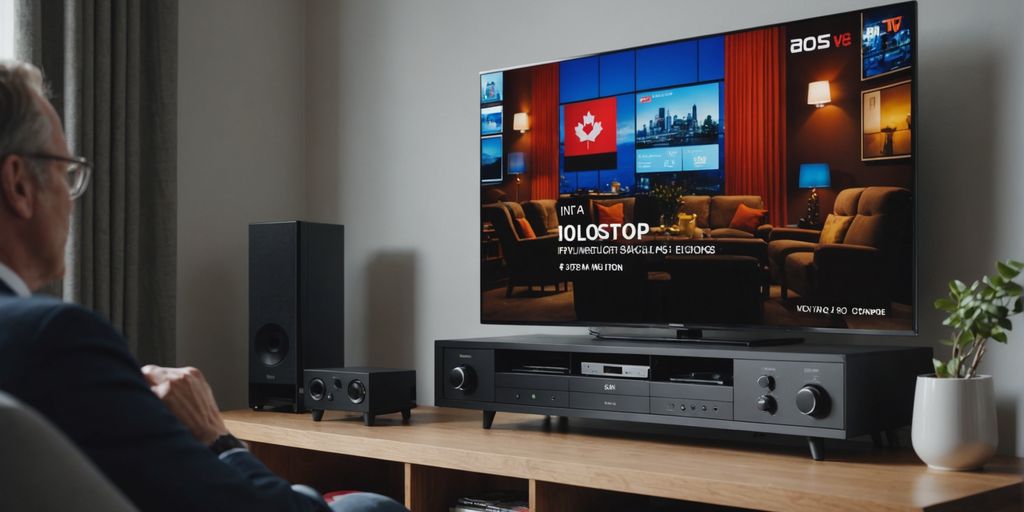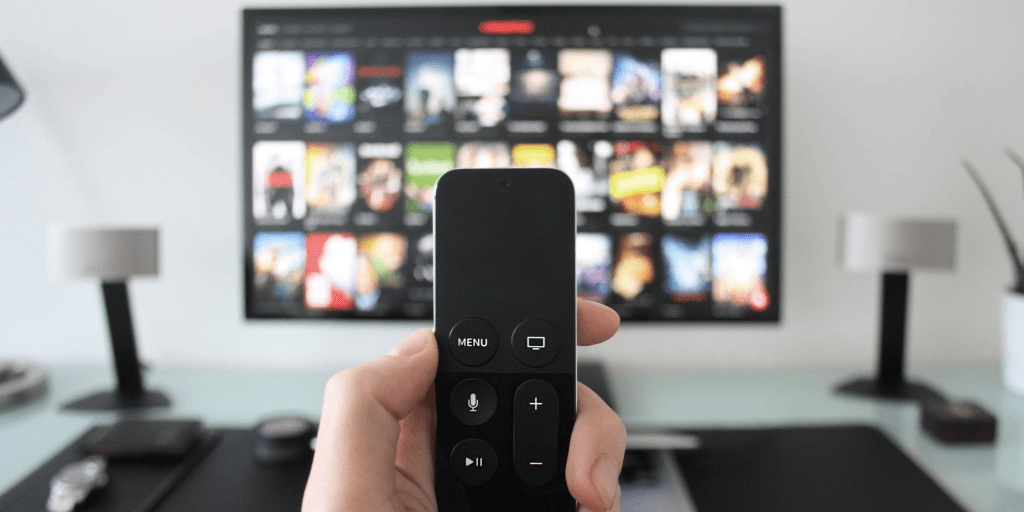As Canadian households continue to seek the best television services, the debate between IPTV and traditional cable remains a hot topic. Each option offers distinct advantages and drawbacks, making it essential for consumers to understand the differences before making a choice. This article delves into the pros and cons of IPTV and traditional cable, providing a comprehensive comparison to help you decide which is best for your home.

Key Takeaways
- IPTV often provides a more cost-effective solution compared to traditional cable, with a wider selection of channels for the price.
- Traditional cable can be more expensive, especially when opting for packages that include multiple premium channels.
- IPTV offers greater convenience and flexibility, allowing users to watch live TV and on-demand content on various devices connected to the internet.
- Traditional cable may come with excessive packages, leading to paying for channels that are rarely watched, and often requires sitting through commercials.
- Choosing a legal IPTV provider ensures access to a vast array of content while adhering to Canadian regulations and avoiding the risks associated with illegal services.
Understanding IPTV: How It Works and What It Offers
Technology Behind IPTV
IPTV stands for Internet Protocol Television and leverages the internet to deliver TV channels and content, rather than relying on traditional satellite or cable systems. This technology uses the Transmission Control Protocol/Internet Protocol (TCP/IP) to stream media, allowing for a more flexible and customizable viewing experience. IPTV provides a cost-effective solution to expensive television packages by offering only the channels you want.
Types of IPTV Services
There are several types of IPTV services available, each catering to different needs:
- Live IPTV: Streams live TV channels in real-time.
- Video on Demand (VOD): Allows users to select and watch video content whenever they choose.
- Time-Shifted Media: Lets users watch previously broadcasted shows at their convenience.
- Catch-Up TV: Similar to time-shifted media but typically available for a limited time after the original broadcast.
Popular IPTV Providers in Canada
In Canada, several IPTV providers have gained popularity due to their extensive channel lineups and reliable service. Some of the top providers include:
- Bestiptvca.ca : Known for its high-quality streaming and extensive channel options.
- Maple Iptv : Offers a seamless integration with other Rogers services and a user-friendly interface.
- VMedia : Provides a budget-friendly option with a variety of channel packages.
IPTV is becoming increasingly popular in Canada, offering a flexible and cost-effective alternative to traditional cable TV. With a stable internet connection, you can access a wide range of content from anywhere in the world.
Traditional Cable TV: Features and Limitations
Channel Lineup and Packages
Cable television offers access to hundreds of channels, allowing consumers to choose from a variety of personalized packages based on different genres. This flexibility ensures that viewers can find content that suits their interests. However, packages are often excessive, and you might end up paying for channels you never watch. Additionally, premium channels usually come at an extra cost.
Installation and Equipment
Installing cable TV typically requires professional assistance, as it involves setting up coaxial cables and other necessary equipment. The installation process can be cumbersome and may incur additional fees. Once installed, cable TV generally provides better reception than over-the-air TV.
Common Drawbacks
One of the main drawbacks of cable television is the need to sit through commercials, which can be a significant inconvenience for many viewers. Moreover, cable TV can only be watched on your television, limiting its accessibility compared to more modern alternatives. Quality is often down, and all the issues noted above with respect to conventional TV, from scope of rights to viewership, revenues, and sustainability, are more pronounced.
While cable TV has been a staple in many households for decades, its limitations are becoming more apparent as newer technologies emerge.
Cost Comparison: IPTV vs. Traditional Cable
When comparing the costs of IPTV and traditional cable, several factors come into play. IPTV services are often cheaper than traditional cable packages, offering a wider channel selection for your money.
Monthly Subscription Fees
The average IPTV package can be as low as $9.99 per month, whereas traditional cable TV typically costs around $49.99 per month. This significant difference can save households a substantial amount of money annually.
Additional Costs and Hidden Fees
Traditional cable services often come with additional costs such as installation fees, equipment rental, and service charges. In contrast, IPTV services usually have fewer hidden fees, making them a more transparent and cost-effective option.
Value for Money
IPTV not only offers a lower monthly subscription fee but also provides greater flexibility and a broader range of channels. This makes IPTV a more attractive option for many Canadian households looking to maximize their entertainment budget.
Content Variety and Accessibility
Channel Selection
IPTV services often provide a broader range of channels compared to traditional cable. This includes international channels, niche genres, and specialized content that may not be available through cable providers. IPTV services are often cheaper than traditional cable packages, offering a wider channel selection for your buck.
On-Demand Content
One of the significant advantages of IPTV is the extensive on-demand content library. Users can access movies, TV shows, and exclusive content at their convenience. This flexibility is a major draw for those who prefer to watch content on their own schedule rather than adhering to a broadcast timetable.
Device Compatibility
IPTV services are highly versatile when it comes to device compatibility. They can be accessed on various devices, including smart TVs, smartphones, tablets, and computers. This multi-device support ensures that users can enjoy their favorite content anytime, anywhere.
The convenience of watching live TV and on-demand content on multiple devices makes IPTV a compelling choice for modern households.
User Experience: IPTV vs. Traditional Cable
Ease of Use
IPTV services offer a more convenient viewing experience compared to traditional cable. With IPTV, users can watch live TV and access on-demand content from any device connected to the internet, including smart TVs, smartphones, and tablets. This flexibility allows for entertainment from literally any place with an internet connection. On the other hand, traditional cable requires a set-top box and is limited to the TV it is connected to, making it less versatile.
Customer Support
Customer support can vary significantly between IPTV and traditional cable providers. Traditional cable companies often have established customer service departments with a range of support options, including phone, chat, and in-person assistance. IPTV providers, especially newer or smaller ones, may not offer the same level of support, which can be a drawback for some users.
Reliability and Performance
When it comes to reliability and performance, traditional cable has the advantage of being a well-established technology with consistent service quality. However, IPTV is more future-proof, as it is not limited by the total bandwidth that coaxial cables can carry. Since only a few channels are sent to your home at a time on IPTV, expanding the channel lineup is potentially unlimited. Despite this, IPTV’s performance can be affected by internet speed and stability, which may lead to buffering or interruptions during peak usage times.
For those who enjoy a consistent, high-quality viewing experience, traditional cable might be the better choice. However, the flexibility and potential for a wider channel selection make IPTV an attractive option for many households.
Legal Considerations for IPTV in Canada
Regulations and Compliance
In Canada, IPTV services must adhere to strict regulations and compliance standards. Watching IPTV is not prohibited in Canada as long as the provider has the necessary licenses and copyright permissions. Consumers should ensure that their chosen IPTV service is fully compliant with Canadian laws to avoid any legal issues.
Risks of Illegal IPTV Services
Using illegal IPTV services can pose significant risks. These services often lack proper licensing, making them illegal and potentially subjecting users to legal action. Additionally, illegal IPTV services may compromise user data and provide unreliable service. It’s crucial to choose a reliable and high-quality legal IPTV provider to ensure a safe and lawful viewing experience.
Choosing a Legal IPTV Provider
When selecting an IPTV provider, it’s essential to verify their legitimacy. Look for providers that are transparent about their licensing and compliance with Canadian regulations. By choosing a legal IPTV provider, consumers can enjoy a vast array of content with the peace of mind that they are adhering to the law.
Whether you are in Brampton or elsewhere in Canada, the IPTV market offers a plethora of options to suit various needs and preferences. By choosing a legal IPTV provider, consumers can enjoy a vast array of content with the peace of mind that they are adhering to the law.
Future Trends in Television: IPTV’s Growing Role
Technological Advancements
The explosion of Internet-enabled TVs and other devices has significantly contributed to the rise of IPTV. These advancements allow seamless access to both traditional and online TV sources, making IPTV a more versatile option. Additionally, increases in Internet network capacity, driven largely by consumer demands for online video, have further bolstered IPTV’s growth.
Consumer Preferences
Consumer interest in cord-cutting or -shaving to reduce TV costs and eliminate services they don’t watch is a major driver for IPTV adoption. The flexibility and convenience of IPTV, which allows viewers to watch their favorite content on-demand, is another key factor. This shift in consumer behavior is unlikely to replace broadcasting in the foreseeable future but shows considerable momentum.
Market Predictions
According to a report by Data Bridge Market Research, the global IPTV market is expected to expand at a Compound Annual Growth Rate (CAGR) of 17.8% from 2023 to 2030. The market was worth USD 34,717.88 million in 2022 and is projected to reach USD 66,654.47 million by 2030. This growth underscores the increasing importance of IPTV in the television landscape.
IPTV is more future-proof compared to traditional cable. Regular cable is limited by the total bandwidth that your coaxial cable can carry. Since only a few channels are being sent to your home at a time on IPTV, expanding the channel lineup is potentially unlimited.
Conclusion
In conclusion, the choice between IPTV and traditional cable TV for Canadian households hinges on individual preferences and priorities. IPTV offers cost-effective solutions, greater convenience, and a wider variety of content accessible on multiple devices. On the other hand, traditional cable TV provides an extensive channel lineup with advanced recording features but can be more expensive and less flexible. As technology continues to evolve, IPTV is likely to play an increasingly significant role in the future of television in Canada. Ultimately, the decision will depend on what each household values more: the comprehensive offerings of traditional cable or the flexibility and affordability of IPTV.
Frequently Asked Questions
What is IPTV and how does it differ from traditional cable?
IPTV, or Internet Protocol Television, delivers television content through internet connections, unlike traditional cable which uses coaxial cables or satellite signals. IPTV offers more flexibility and a wider range of on-demand content.
Are IPTV services legal in Canada?
Yes, IPTV services are legal in Canada as long as they comply with regulations and obtain proper licensing. Consumers should choose reputable providers to ensure they are using legal services.
What are the cost differences between IPTV and traditional cable?
IPTV services are often more cost-effective than traditional cable. Basic IPTV packages can start at lower prices and offer a broader range of channels. However, additional costs may apply for premium content.
Can I watch IPTV on multiple devices?
Yes, one of the advantages of IPTV is its compatibility with various devices. You can watch IPTV on smart TVs, smartphones, tablets, and computers, as long as they are connected to the internet.
What are the common drawbacks of traditional cable TV?
Traditional cable TV often comes with higher costs, limited device compatibility, and the necessity to pay for channels you may not watch. Additionally, commercials are unavoidable, and premium channels require extra payment.
What should I consider when choosing an IPTV provider in Canada?
When selecting an IPTV provider, consider factors such as legality, channel selection, cost, customer support, and device compatibility. It’s essential to choose a provider that complies with Canadian regulations to avoid legal issues.


